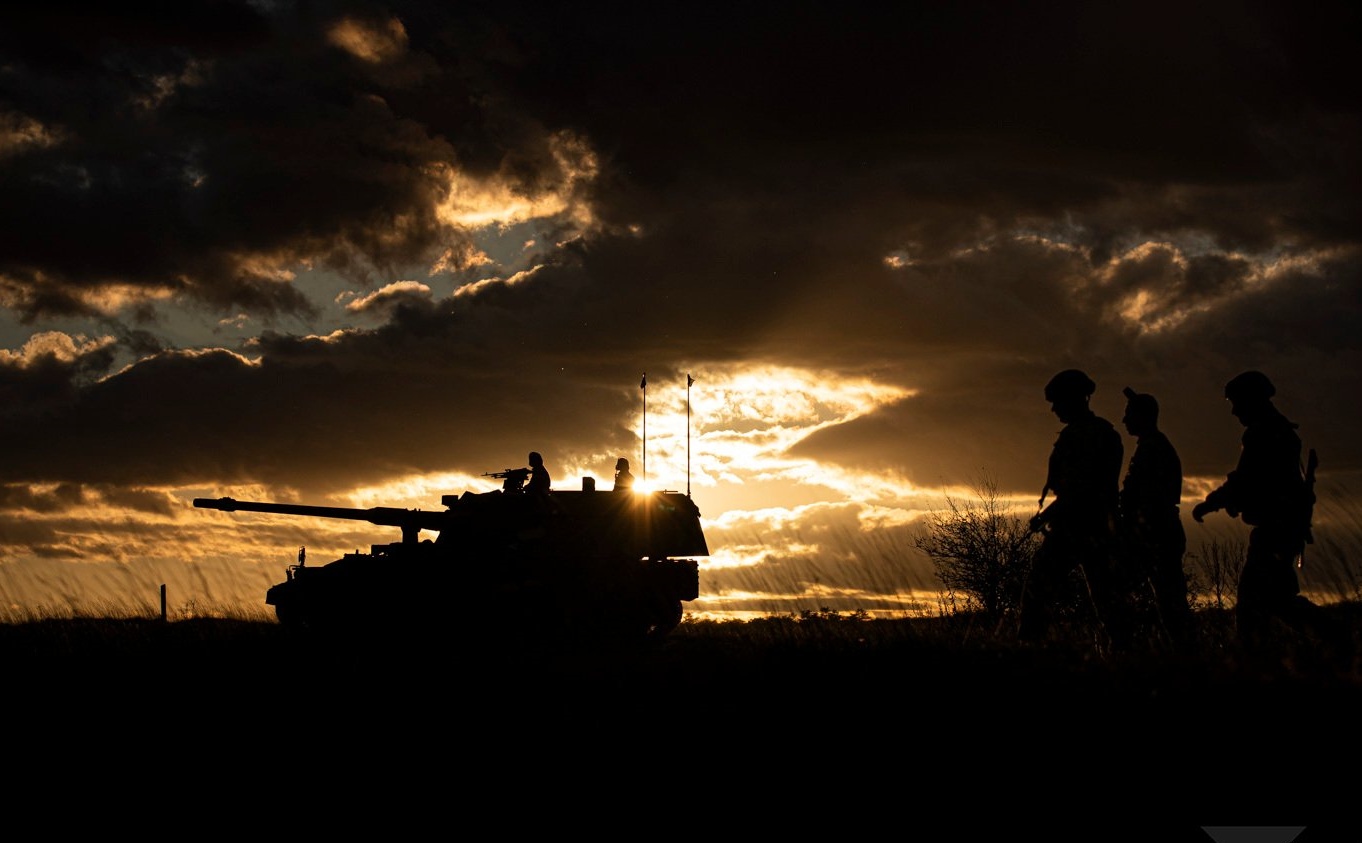
The exercise is taking place with the participation of Hungary, Italy, Turkey, Croatia, and the United States.Continue reading
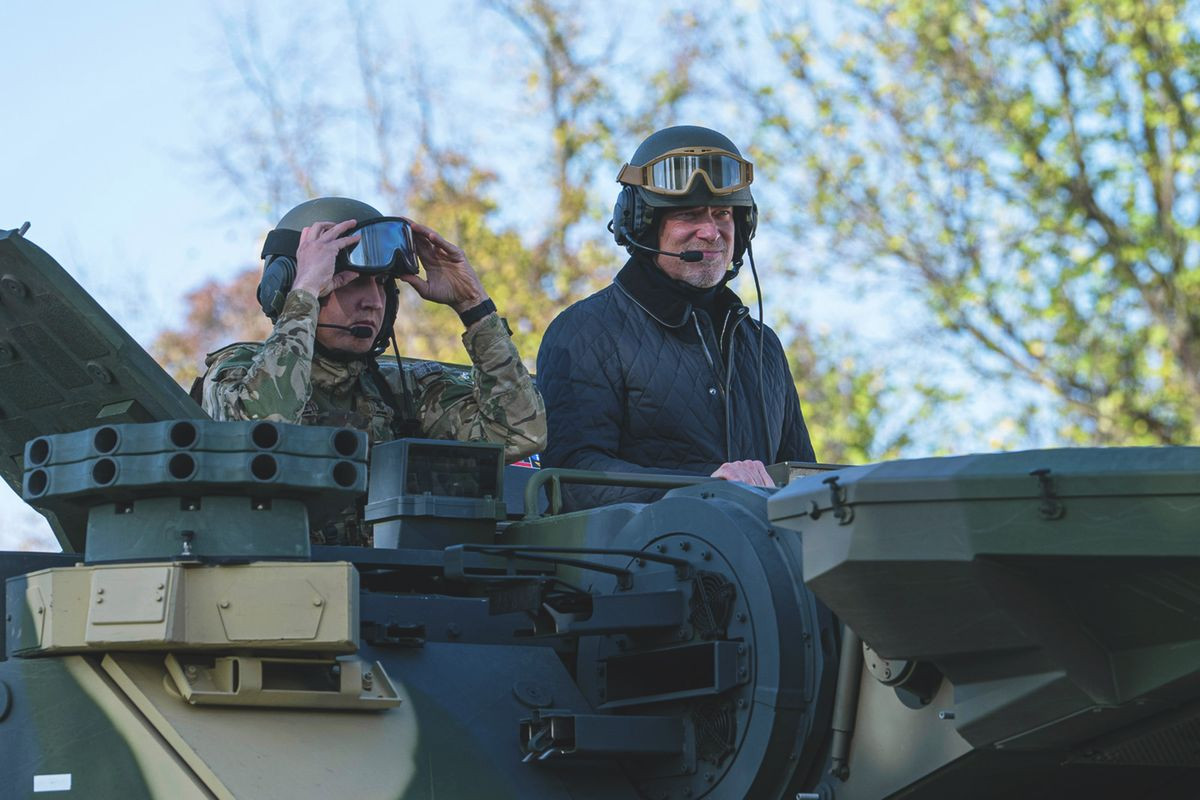
In an interview for Hungarian site VG.hu, Defense Minister Kristóf Szalay-Bobrovniczky said that the question regarding the Hungarian defense forces’ capabilities is not whether we can defend ourselves, but at what sacrifice can we do so. The government is treating the issue of national defense as a priority national issue, and is providing the resources necessary for the comprehensive modernization of the Hungarian Defense Forces, even in the face of external economic challenges.
Lasting peace, a world without conflict and friction, is an illusion, and we are paying a heavy price for lulling ourselves into a colorful Sleeping Beauty dream of eternal peace in Europe. However, Hungary has woken up in time from its long, soft sleep and we have begun to gather the strength to live in peace and tranquillity. There is no doubt, however, that since 2010, we have been confronted with noticeably more crises and conflicts than before. The minister expressed the view that the institutional system that emerged during the Cold War is now the catalyst for at least some of the conflicts that are emerging in our post-Cold War world. The hopes and promises to the contrary were that, with the end of the Cold War, Cold War institutions would be able to guarantee lasting peace.
What does not evolve, declines,” is my feeling about the international system that provides the framework for our world.
In the nineties and two-thousands, the omnipotence of globalization became the general view, and now we are faced with the negative consequences, the downsides of globalization, Kristóf Szalay-Bobrovniczky added.

Photo: Honvedelem.hu
In the minister’s view, as far as the end of the war between Russia and Ukraine and Israel is concerned, neither conflict will be resolved tomorrow. The real question is what impact these wars will have on the established order and Europe in it. A protracted war is destructive to Europe’s security and stability. This is particularly true of the war in Ukraine. The longer it goes on, the greater the chance of escalation, and the greater the already huge human and material cost. The Hungarian Government stands firmly by the position it has taken since the beginning of the Russian-Ukrainian war, and only an immediate ceasefire and the immediate start of peace negotiations can provide a way out of a conflict that is destroying the lives of millions.
The minister continued by saying that the flashpoint of the Israeli conflict is not a war between states, because what has happened in Israel is barbaric bestiality against our civilization.
The cold-blooded killing of women, children, babies, the elderly, and the defenseless is beyond any war crime and beyond all international law. Barbarism cannot be tolerated. Our country therefore stands up for Israel’s right to self-defense.”
The renewed Israeli-Palestinian conflict also shows that there is no peace with terrorism. The intertwining of uncontrolled, mass migration and terrorism is a growing, one might say existential, threat. From the very beginning, from the outbreak of the migration crisis in 2015, the government has placed a strong emphasis on keeping the problem on the agenda of the Euro-Atlantic alliance. Illegal migration and the related challenges, such as organized crime, trafficking in human beings and arms for brutal profits, and the accompanying phenomenon of terrorism, can only be stopped through decisive and concerted action.
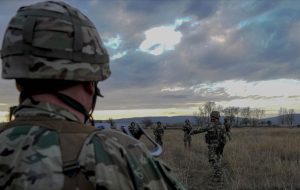
Photo: Honvedelem.hu
Before we entered the era of danger, the Hungarian government had smelled gunpowder from afar, said the minister. That is why in 2016, Hungary embarked on the largest, most comprehensive force development in its history, which aims to regain many of the lost capabilities of the Hungarian Defense Forces, while strengthening and modernizing them through a complete culture change. Recent acquisitions include high-tech equipment such as the Airbus H225M helicopter, the Turkish Gidran armored fighting vehicle, soon to be produced in Hungary, the German Leopard, the PzH 2000, or the world’s most modern infantry fighting vehicle, the German Lynx, also indigenously produced. There is no defense without adequate air defense, and a few weeks ago we handed over the Norwegian-American NASAMS air defense missile system.
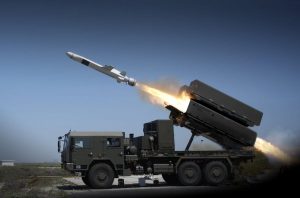
NASAMS air defense system. (Photo: Facebook/Next Generation Weapons Technology)
In order to equip the Hungarian Defense Forces with modern heavy equipment, the defense minister has purchased 44 Leopard 2A7HU tanks, 218 KF41 Lynx infantry fighting vehicles, and 24 Panzerhaubitze 2000 self-propelled armored personnel carriers, Szalay-Bobrovniczky noted. Cooperation with Rheinmetall, a world leader in the defense industry and the manufacturer of the Leopard and Lynx, has deepened to such an extent that Hungary and Hungarian engineering ingenuity are also involved in the joint development of the Panther tanks. This in turn further strengthens the Hungarian defense R&D capability, which is a declared goal of Hungarian force development. High-tech is an exportable and sought-after product on the world market, and we are working for a top-quality Hungarian future.

Airbus H225M. Photo: Honvedelem.hu
A country capable of self-defense has its own military-industrial capacity. This is why we invited Rheinmetall to Zalaegerszeg to manufacture the Lynx armored vehicle, why we restarted small arms production in Kiskunfélegyháza, and why we started the construction of the medium and large caliber ammunition and explosives factory in Várpalota, also with Rheinmetall. We have recently signed a letter of intent with the long-established Italian company Beretta to expand the production of small caliber ammunition, but we are also cooperating with DND, which is partly owned by Israel.
The defense industry is now the new engine of the Hungarian economy. Newly established factories and plants are gradually being integrated into the bloodstream.
The Lynx plant has already started production, and next year the first phase of the Várpalota plant will start. We are also taking care of the training of professionals. In Csongrád, the DIANA Weapons Technology Technical College and Technical College is an excellent example of this, where many dedicated and enthusiastic young people are studying, whom we hope will become the trained, “capable hands” of the Hungarian defense industry of the near future.
One of the most modern medium and large calibre ammunition production plants in Europe is being built in the Várpalota Defence Industrial Complex as a joint investment between the Hungarian state and the German company Rheinmetall. The development of an independent defense industry is one of the pillars of European strategic autonomy.
The Várpalota ammunition factory is of particular importance not only for Hungary, but for the whole of Europe, as the war has led to the country supplying arms and ammunition to exhaust their own strategic capacities.
The procurement of the high-tech, heavy machine-gun armoured, four-wheel drive, rubber-tyred Gidran combat vehicles was the first milestone in Turkish-Hungarian defense industrial relations. At the end of October, a Memorandum of Understanding was signed with the Turkish side that the basic vehicle will be produced in Hungary by Rába in Győr. Thus, together with the integration work remaining in Kaposvár, the entire production of this combat vehicle will also be carried out on home soil.
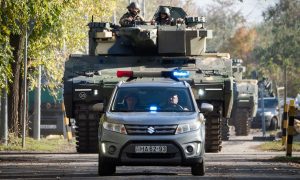
Lynx kf41. Photo: Honvedelem.hu
In terms of numbers, we are seeing more young people signing up than we expected, with the latest addition of around 500 committed patriots in September alone. We are launching another campaign, this time inviting young people to join the Tata Brigade, the new Hungarian artillery, Szalay-Bobrovniczky concluded.

The exercise is taking place with the participation of Hungary, Italy, Turkey, Croatia, and the United States.Continue reading
Via VG.hu, Featured Image: Honvedelem.hu
Array
(
[1536x1536] => Array
(
[width] => 1536
[height] => 1536
[crop] =>
)
[2048x2048] => Array
(
[width] => 2048
[height] => 2048
[crop] =>
)
)